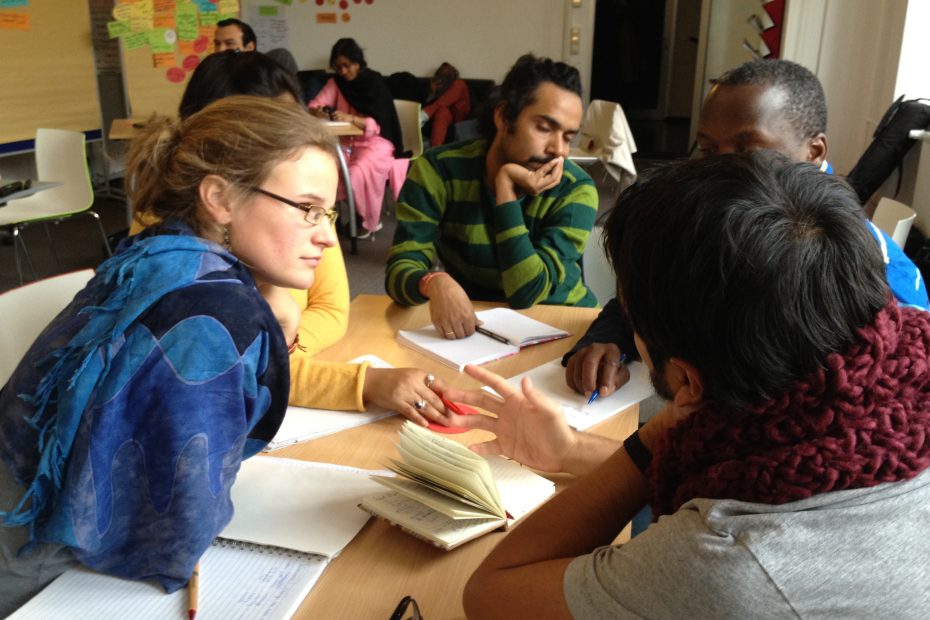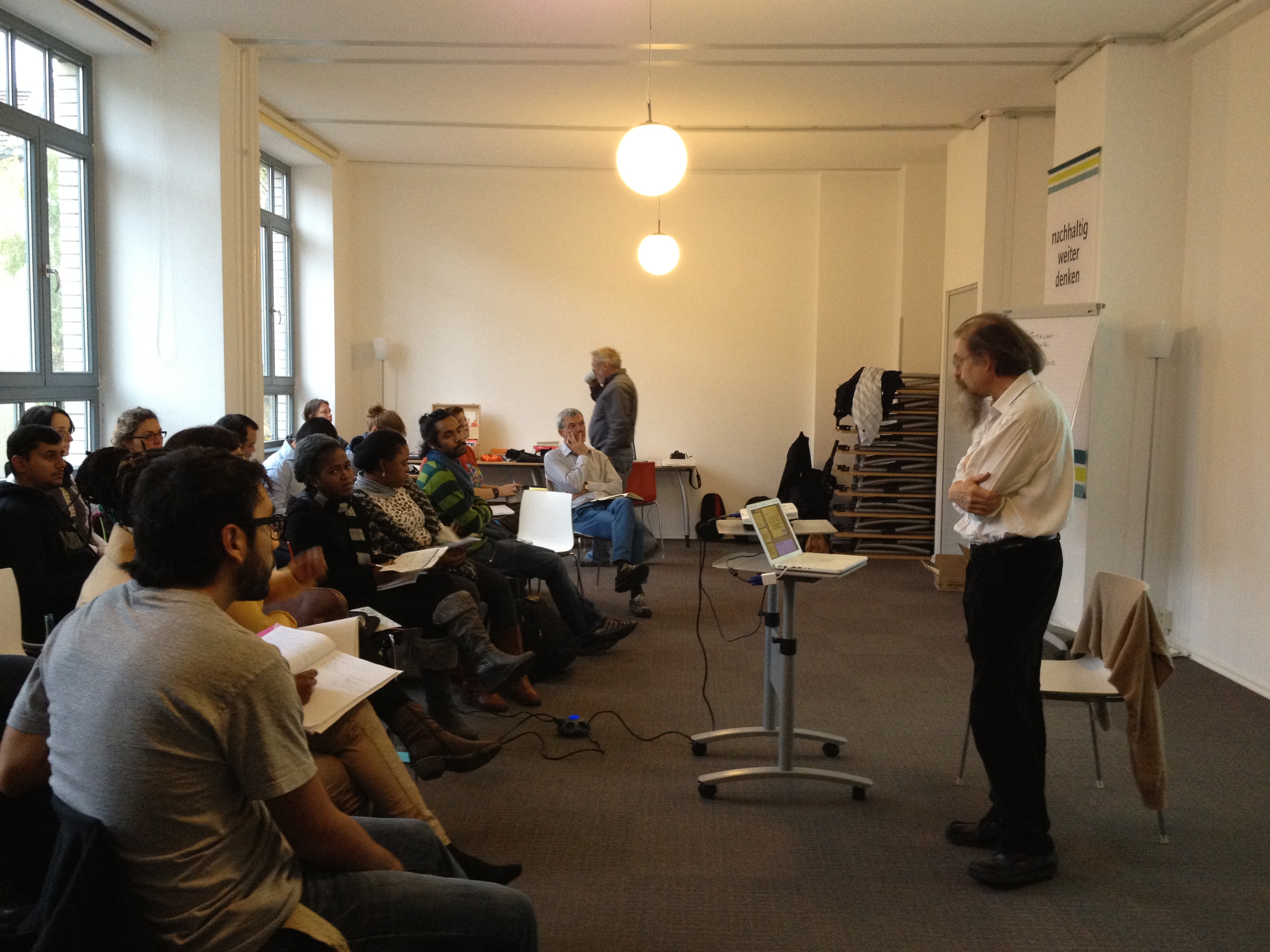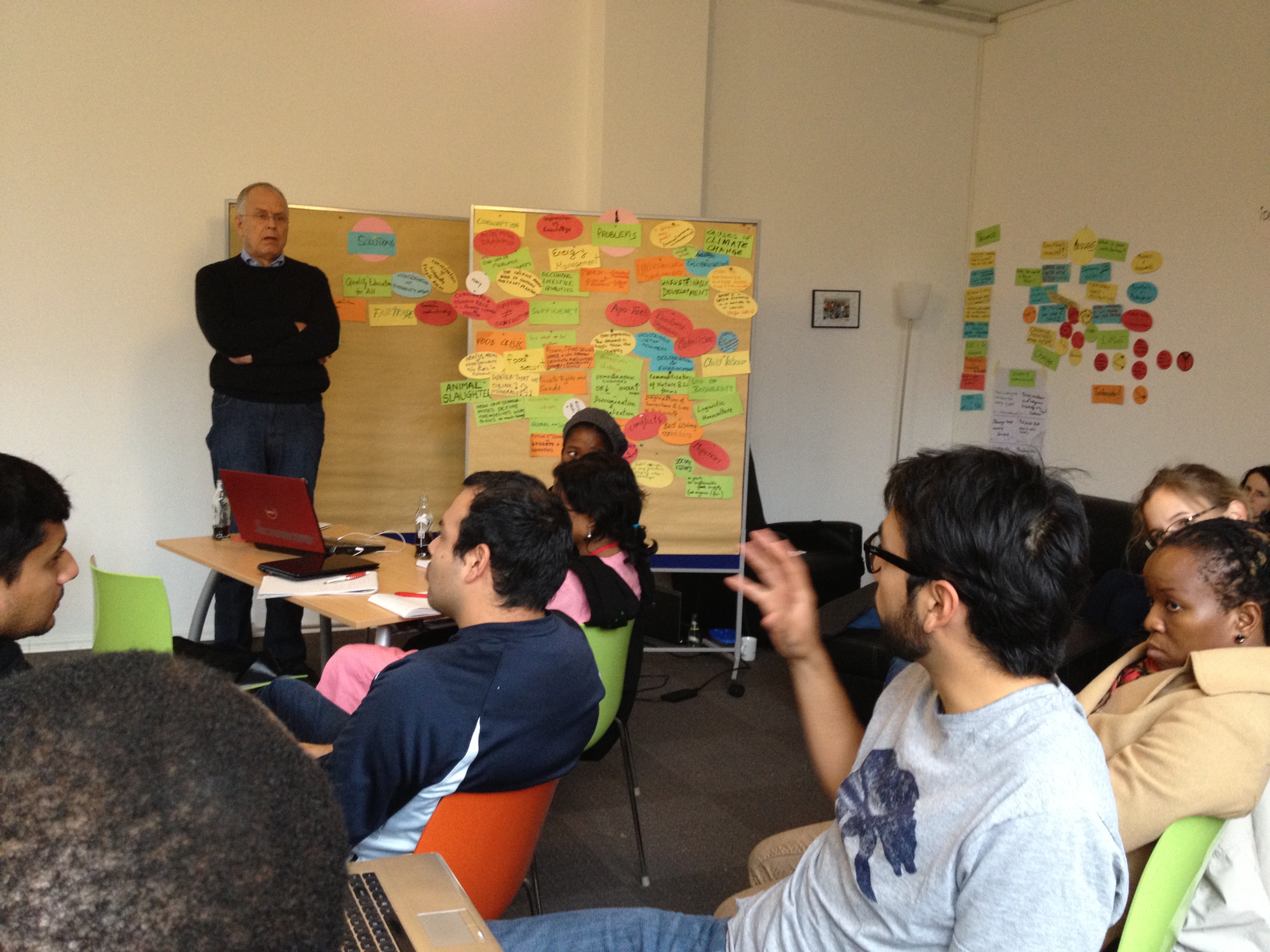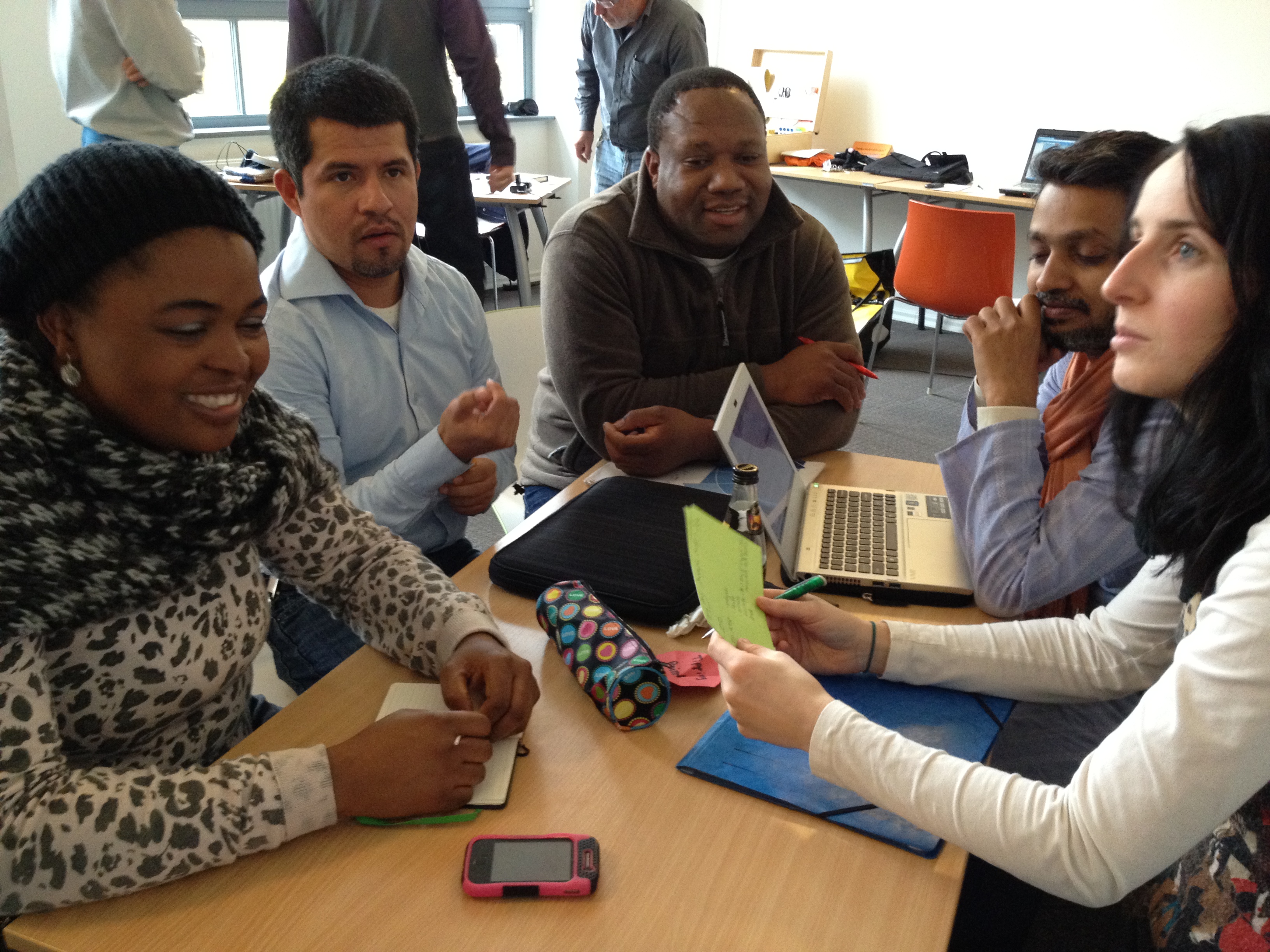Tuesday was to bring with it two expert speakers, and the beginning of Scenario Work 2052.
Hans Diefenbacher, a Professor & Doctor of Economics and Social Statistics, opened the morning with a presentation on Growth vs. Wealth. This was a topic requested by one of the participants, as it was thought to be of benefit to give the whole group a basic grounding in the economics behind sustainability on a global scale.
Dr. Diefenbacher highlighted the flaws in current systems of economic analysis. For example, the issues surrounding the make up of a country’s GDP – freak natural accidents e.g. hurricanes, can contribute positively to GDP due to the investment required to make repairs, and distribution of wealth is not considered.
He also demonstrated how growth in a country (a rise of GDP) does not correlate with the happiness in that country, and so of what importance is it? (However, he was careful to point out that to lower the GDP would not automatically bring about happiness either!)
Hannes Siege, a lecturer at the University of Cologne and speaker at the Rio+20 Conference, arrived to speak about Education & Poverty, and the links between the two. The question ‘What is Education?’ prompted discussion among the group, who come from various education backgrounds. The issue of Poverty was also discussed. There proved to be a basic correlation between a basic education and economic growth within a country. So from this, we understand that education is essential for Sustainable Development.
Mr Siege shared that in developed countries, Education for Sustainable Development is often integrated into general education, usually to meet policy commitments. Meanwhile, countries like South Africa approach the issue as a whole, seeing an important factor of Sustainable Development as getting a basic level of education for all.
Hans Rosling’s TED speech ‘The Magic Washing Machine’ was then shown, demonstrating the importance of the industrial revolution to aid growth in all countries.
The third element of the day was to begin Scenario Work 2052, a project carried out throughout the participants time here, in 4 groups. The objective of this is to create four stories demonstrating the possible changes that could occur between 2012 and 2052. Each one is based around 4 scenarios – Tipping Point, Overshoot, Dictatorship & a Change in Rules – but the rest is left up to the group members. Stories can include the possible global challenges, solutions, mindsets, problems, symptoms & syndromes, and today was the first meeting of the four newly created groups.



